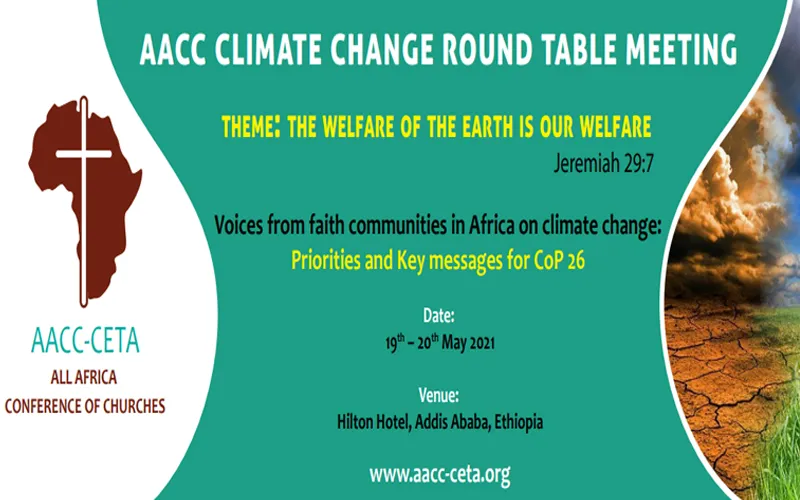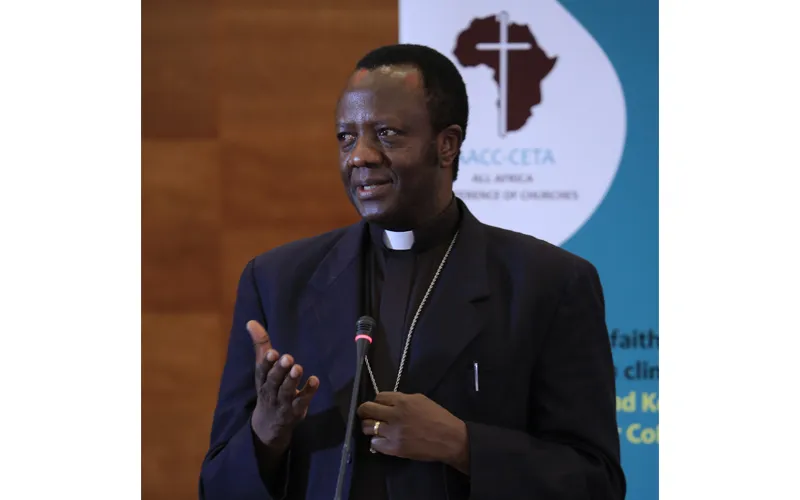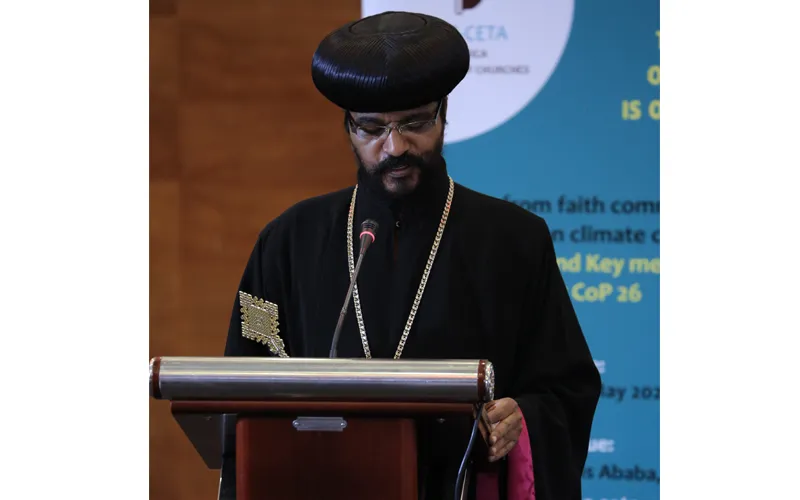The facilitator of the Roundtable, Dr Albert Butare who serves as the Chief Executive Officer of the Africa Energy Service Group, noted that despite the continent having set itself development goals as enshrined in the Africa Agenda 2063, attaining these aspirations has become increasingly difficult due to the impacts of climate change.
In the AACC report shared with ACI Africa, Dr. Butare notes that the Paris Agreement had designated Nationally Determined Contributions (NDAs) as the platforms that would enable countries to access additional resources to finance ambitious climate actions.

“Consequently, African NDCs are among the most ambitious ones, and tend to be unrealistic given the continent’s limited means of implementation,” the official noted.
In his presentation, the chairman of the Political Committee of the Pan-African Climate Justice Alliance (PACJA), Dr Augustine Njamnshi, said that Africa was looking towards COP26 for a global climate policy and action framework that “responds to their unique circumstances created by the injustices of disproportionate vulnerability, exposures to risks, and incapacity to protect itself without help.”
(Story continues below)
Dr. Njamnshi expressed the commitment of the African continent to participate in climate initiatives “despite its insignificant contribution to climate change.

Scheduled to be held between 1-12 November, the COP26 summit is expected to bring parties together to accelerate action towards the goals of the Paris Agreement and the UN Framework Convention on Climate Change.
Signed in 2016, the Paris Agreement sets out a global framework to avoid dangerous climate change by limiting global warming to well below 2°C and pursuing efforts to limit it to 1.5°C.
The Agreement also aims to strengthen countries' ability to deal with the impacts of climate change and support them in their efforts.
Church leaders have, in anticipation of the COP26 summit, appealed to the developed countries to support poor countries in implementing climate action.
In a letter to the African Union (AU), the European Union (EU) and the European Commission (EC), Jesuit leaders in Africa and Europe called upon Europe, which they said belongs to the largest polluters, to renew its commitment to support developing countries in financing climate action.
“At the COP 21 and the Financing for Development Conference in Addis Ababa in July 2015, European countries pledged to support developing countries to finance climate action. Europe needs to renew this commitment,” they said.
According to the information on the UN Climate Change Conference UK 2021, the UK has expressed a commitment to work with all countries and joining forces with civil society, companies and people on the frontline of climate change to inspire climate action ahead of COP26.
Agnes Aineah is a Kenyan journalist with a background in digital and newspaper reporting. She holds a Master of Arts in Digital Journalism from the Aga Khan University, Graduate School of Media and Communications and a Bachelor's Degree in Linguistics, Media and Communications from Kenya's Moi University. Agnes currently serves as a journalist for ACI Africa.












